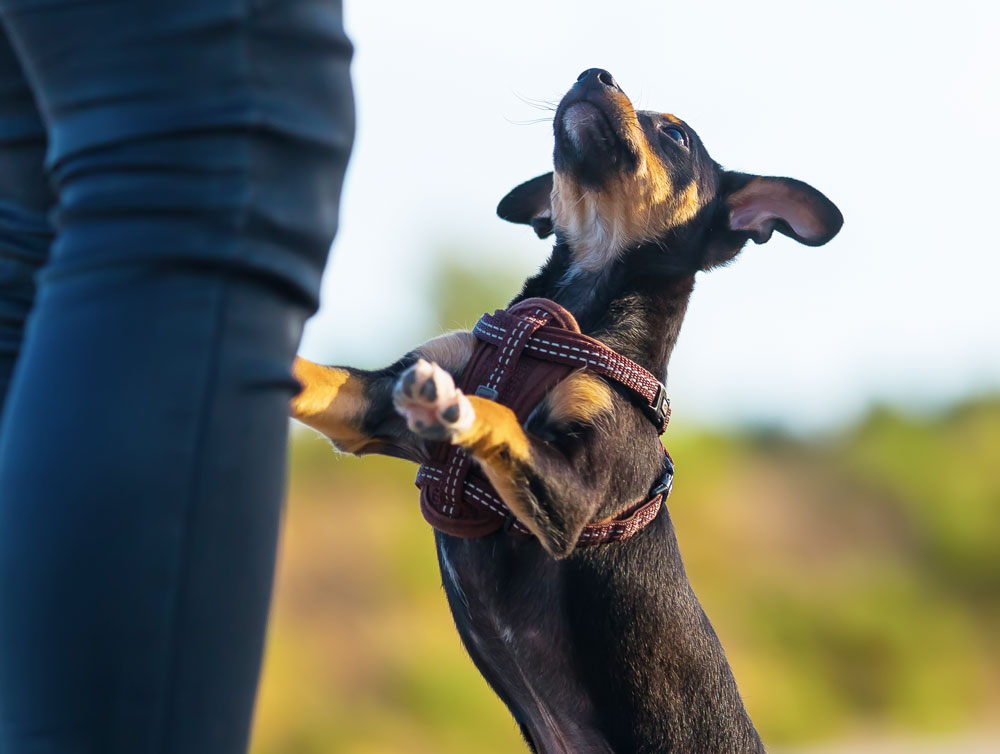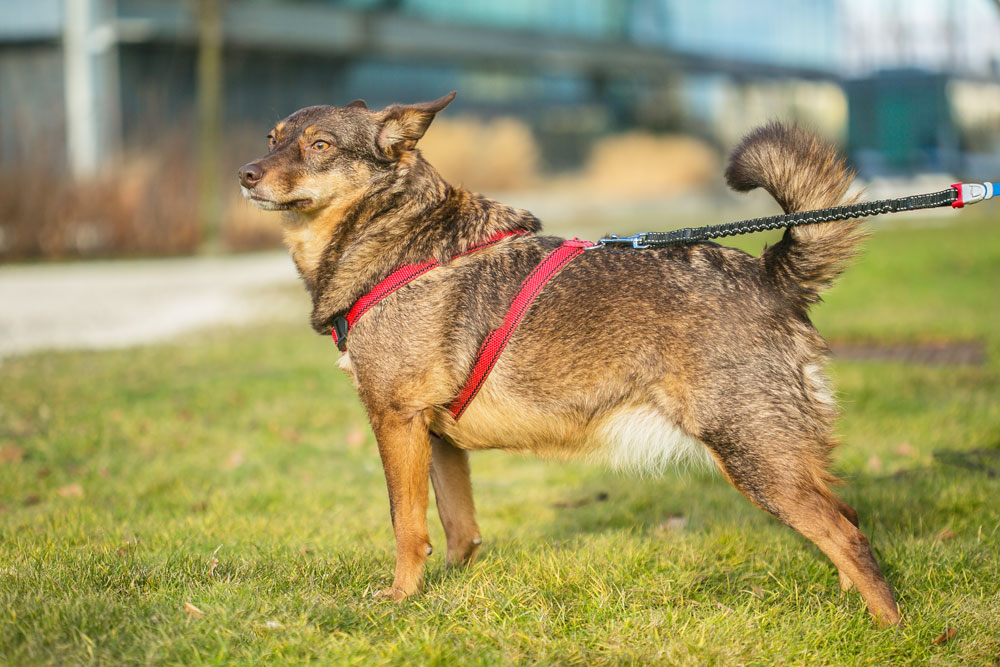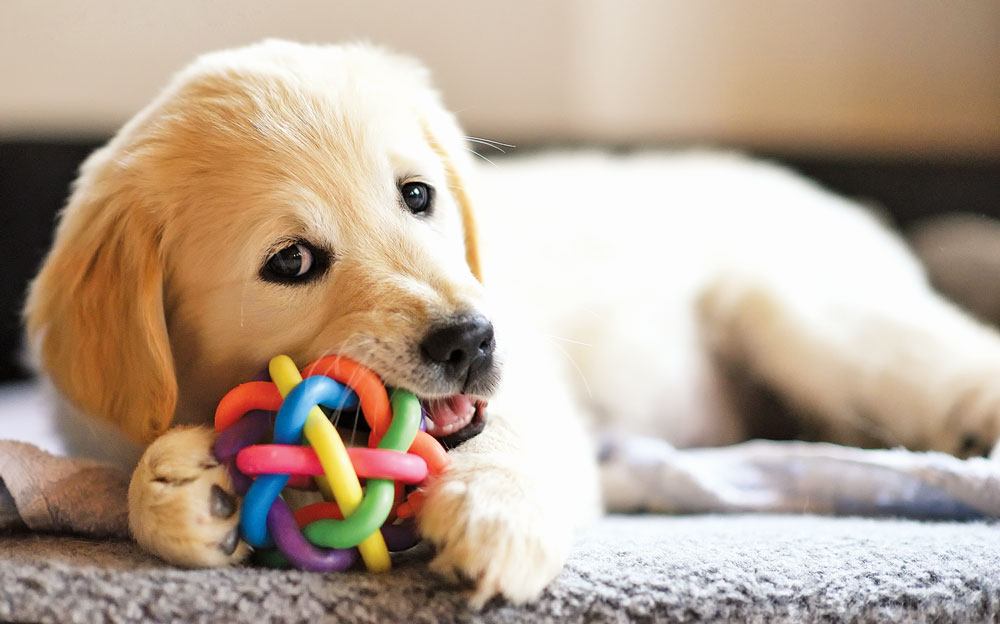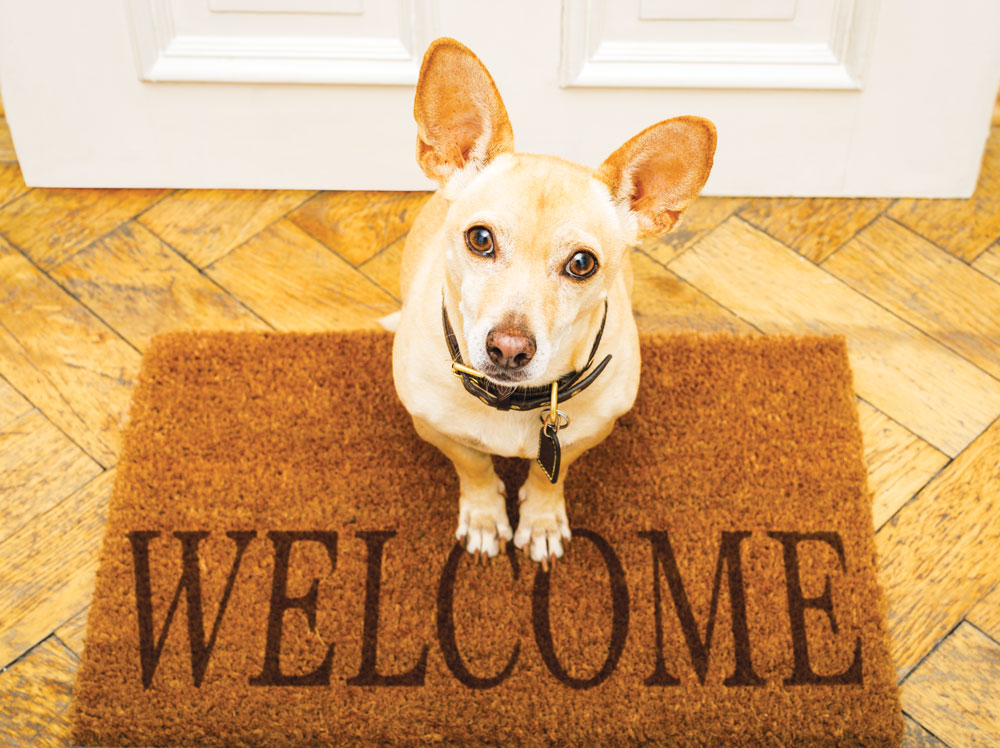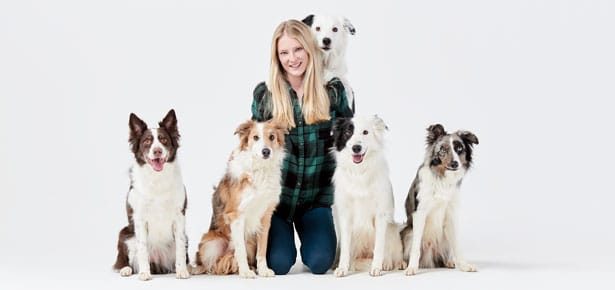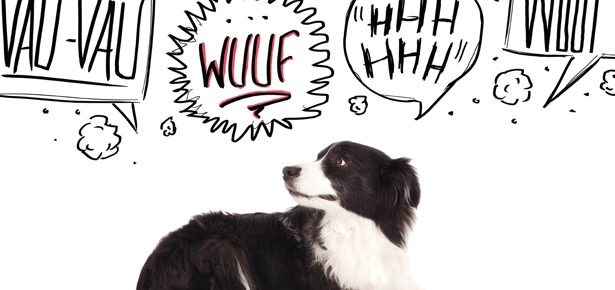

Tales From a Professional Dog Trainer
Tom Shelby's Dog Training Diaries

Learn The Secrets of a Professional Dog Trainer!
The magnetic Tom Shelby is not only a lifelong dog trainer (and former Westminster Dog Show handler) with a specialty in Search and Rescue dogs, but a master storyteller too.
“I have the best job in the world. I love what I do… I’ve had the best time,” laughs Tom, regaling us with P.I.-worthy dog stories that involve tape recorders and court dates. His terrific, recently published book, The Dog Training Diaries, is not only filled with problem-focused advice honed from decades of experience working with dogs, but is compulsively readable, filled with stories of the toughest cases his New York elite clientele could throw at him. We asked him to share his top tips (think putting a stop to inadvertently rewarding bad behaviour. Guilty!) and some quick fixes/preventatives for common issues. Read on…
Image: Madrabothair/bigstock.com
Q: If readers were to do just one thing differently with their dogs, what would you reccommend it would be?
Stop (inadvertently) rewarding bad behaviour! Training is letting the dog know you like or don't like the behaviour as it’s happening based on timing, body language, and voice intonation. No animal reads us better than the dog. None. A thousand times, I’ve arrived at a client’s home and when the door opens, Cujo wants to eat my kneecap and is being held back by the owner. And what's the owner doing? He's trying to tamp down the aggression, calm him if you will, by petting Cujo while telling him, “It's OK.” That’s like Mom telling her four-year-old son “good job!” when he’s pinching Grandma. Lovingly stroking Cujo in this situation will only encourage the aggression. The body language (petting Cujo) = rewarding. The intonation (loving voice) = rewarding. The timing (stroking and speaking lovingly AS the unwanted behaviour is happening) = inadvertently rewarding. Pet Cujo with a loving smile on your face only when Cujo’s behaviour is what you want and making you happy.
Image: Lioneska/bigstock.com
Q: Do people need to be more aware of the energy they transmit to their dogs?
You bet! Feisty thinks it's his job to exert his supremacy with every dog he sees. You’re relieved because it's bad weather today—best time to take Feisty to the park because there'll be fewer people out with their dogs. So, you're hanging out in the park, facing the entrance. Feisty is nice and relaxed, facing the opposite direction. Then you see someone entering with their German Shepard. Without thinking, you immediately tighten the leash, saying, "Feisty!!" Feisty was just fine until the sudden strong pressure on his neck and the tension in your voice startled and freaked him out. What's he going to relate all this anxiety to? Of course, the other dog he now sees. The timing of the energy you transmitted to Feisty exacerbated his relationship difficulties. One of the many things I do with a dog like Feisty is con him with love and praise just before he sees another dog, thus changing the initial association when seeing another dog.
Image:Minimalis Photography/bigstock.com
Q: Why would a middle aged dog suddenly be exhibiting problem behaviour?
I lost count of all the times a dog owner said, "My dog is doing "whatever" for no reason at all. Well, there's always a reason! Like the time the terrier owner said, "Gouger keeps scratching at this piece of wall—for no reason at all!!" That was an easy one. I told her to call an exterminator because there were bugs or mice behind that section of wall. Your dog is cognizant and sensitive to the vibes in the house, and will often react to your mood change, from the joy of winning the lottery to the depression of a cancer diagnosis, job loss, or nasty arguments leading to a divorce. So, when I'm told an older dog is suddenly presenting aberrant behaviour, I ask a lot of questions to see if something might have changed the vibe in the house. One time, a couple called me to help with their six-year-old mini Schnauzer, Smokey, who was all of a sudden urinating in the apartment and acting very scared and sketchy “for no reason at all.” After a vet visit to rule out anything physical and an hour of questioning, I came up with nothing, so I told them to leave a voice activated tape recorder in the living room. (I've used tape recorders as proof in court to discern the truth of how long a dog really barked when a tenant complained. Never lost a case—plaintiffs always vastly inflate barking time). Did I mention the couple also had an African Grey Parrot named Bandit? The day after the tape recorder was set up, I got the call. “That stinker Bandit is imitating the sound of the doorbell and then screaming at Smokey when he barks at the door, calling him a bad boy, and some other things. Bandit is having a great time making poor Smokey nuts!" With a little confidence building for Smokey and Bandit moved to another room, problem solved. There's always a reason.
Image: Photology1971/shutterstock.com
Q: Why is a dog's den instinct an important concept to harness?
For we two-leggeds, our den is our house—the safe harbour where we're most comfortable and relaxed, where we always want to return. I actually think of the house in terms of two dens. The house is our den, but the bedroom is our inner den, the bed being the innermost retreat when we feel terrible. And so it is with our four-legged family members. Enhancing the den instinct is critical to housebreaking your dog. If you fail to help the dog understand that your house is also his den, you’ll be using lots of cleaning detergent and odour neutralizers. Even if your dog, Dribble, does your kid's homework and takes out the garbage, if he poops or pees in the house, it's no good! The good news is, dogs prefer to keep their dens clean (den instinct). Start by teaching Dribble to love his crate and make it his den by feeding him in there, and using lots of treats and praise when he's in it, and never using it as a punishment. He will prefer "holding" rather than soiling his den. As Dribble gets integrated into the whole house, the crate will be his inner den, and your house, your den, expands into his den. Eddie Murphy once asked me why his dogs always peed on the expensive carpet in the formal dining room. When asked, he told me they were never in there for meals, maybe once last Thanksgiving. Since Eddie’s dogs hardly ever went in that part of the house, that area was never part of the den and became "fair game."
Image: Javier Brosch/shutterstock.com
Q: How do you deal with unruly behaviour at the door and incessant barking at visitors?
A dog's "territoriality" is one of the key reasons for the creation of the social contract between man and dog. Their territorial instinct causes them to serve as protective alarm systems. Between their superior hearing and incredible nose, it's almost impossible for an animal or person to sneak into your house without the dog alerting you. Sometimes a dog’s territorial response gets a little unhinged, as was the case with Liam Martin's dog, a Chihuahua who would bark at a visitor continually for 15 minutes, even after the guest was in the house. Liam is one of the anchors on CBS News in Boston, and, while interviewing me about my book, he asked me how to deal with this annoying behaviour. Having only a few minutes, I gave him a quick fix. "Does Lilly bark at people when you meet them outside?" I asked. "No, she's fine when we meet people outside," he answered. "Great," I said. "From now on, you and Lilly will meet your guest outside of the house, reducing some of her territoriality. Slip the visitor a treat while asking them to tell Lilly to sit, and give her the treat when she does. Then walk into the house together with the guest entering first, sitting, and calling Lilly to come and sit for another treat.” Barking problem solved. By the way, because chaos at the door is very common, my training sessions almost always include a "door turmoil routine.”
Join the newsletter and never miss out on dog content again!
"*" indicates required fields
By clicking the arrow, you agree to our web Terms of Use and Privacy & Cookie Policy. Easy unsubscribe links are provided in every email.
